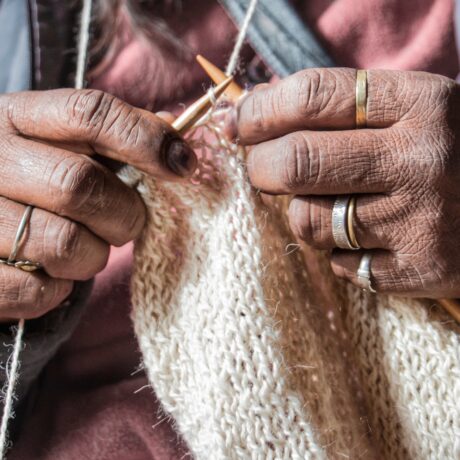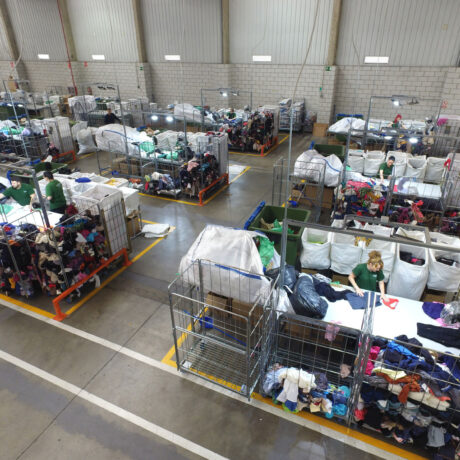Haiti Earthquake Anniversary: Garment Workers Still Struggle to Survive
Six years after a major earthquake devastated the Haitian capital and its environs and the international community promised to “build back better,” Haitian workers say their daily lives are a struggle for survival, with their meagre wages insufficient to cover basic expenses.
In recent interviews, Haitian garment workers told the Solidarity Center that they are worse off today than before the quake. With prices rising and wages largely stagnant, their paychecks do not allow them to support themselves and their families.
“We spend almost our entire daily wage on food and transportation,” said one garment worker interviewed. “We cannot save any money and we do not have enough money to get health care or education. Our future is compromised.”
Another worker said he sometimes has to borrow money to “make sure that at least the family has something to eat.”
Haiti is the poorest country in the Western Hemisphere and one of the poorest in the world. According to the World Bank, more than 6 million of Haiti’s 10.4 million people (59 percent) live under the poverty line.
Haitian garment workers hold rare full-time jobs in an economy that is largely informal, and work for profitable multinational manufacturers, some incentivized to come to Haiti and create jobs after the quake. Yet garment-sector wages are legally set below the national minimum wage and well below what is necessary to cover basic costs. A December 2015 Solidarity Center analysis of living expenses found that the average garment worker spends 160–225 Haitian gourdes ($2.80 – $3.94) a day on food and transportation for herself, and another 395 gourdes ($6.91) on food for the household. The current minimum daily wage for garment workers, who work 48 hours a week, is 225–240 gourdes ($3.94–$4.20). The minimum wage is supposed to increase this spring, to $5.11 for an eight-hour shift.
In 2013, Haitian workers and their unions waged rallies and protests to demand that the daily minimum wage be increased to 500 gourdes ($8.75) for export apparel workers. The government set the wage at less than half of that. In 2014, the Solidarity Center found that a living wage of 1,000 gourdes per day would allow workers to meet their basic needs.
“As we mark this grim anniversary, we have to ask why the people best-positioned to revive the Haitian economy—hardworking Haitians—are handicapped by abysmal and degrading wages. Until Haitians can earn a living that allows them to do more than barely survive, there will be no real recovery,” said Shawna Bader-Blau, executive director of the Solidarity Center. “The international community and Haitian government should be ashamed of policies that guarantee poverty wages and grant concessions to multinational corporations instead of providing real opportunities for Haitians workers to improve their lives and livelihoods and build a better country for themselves and their children.”







